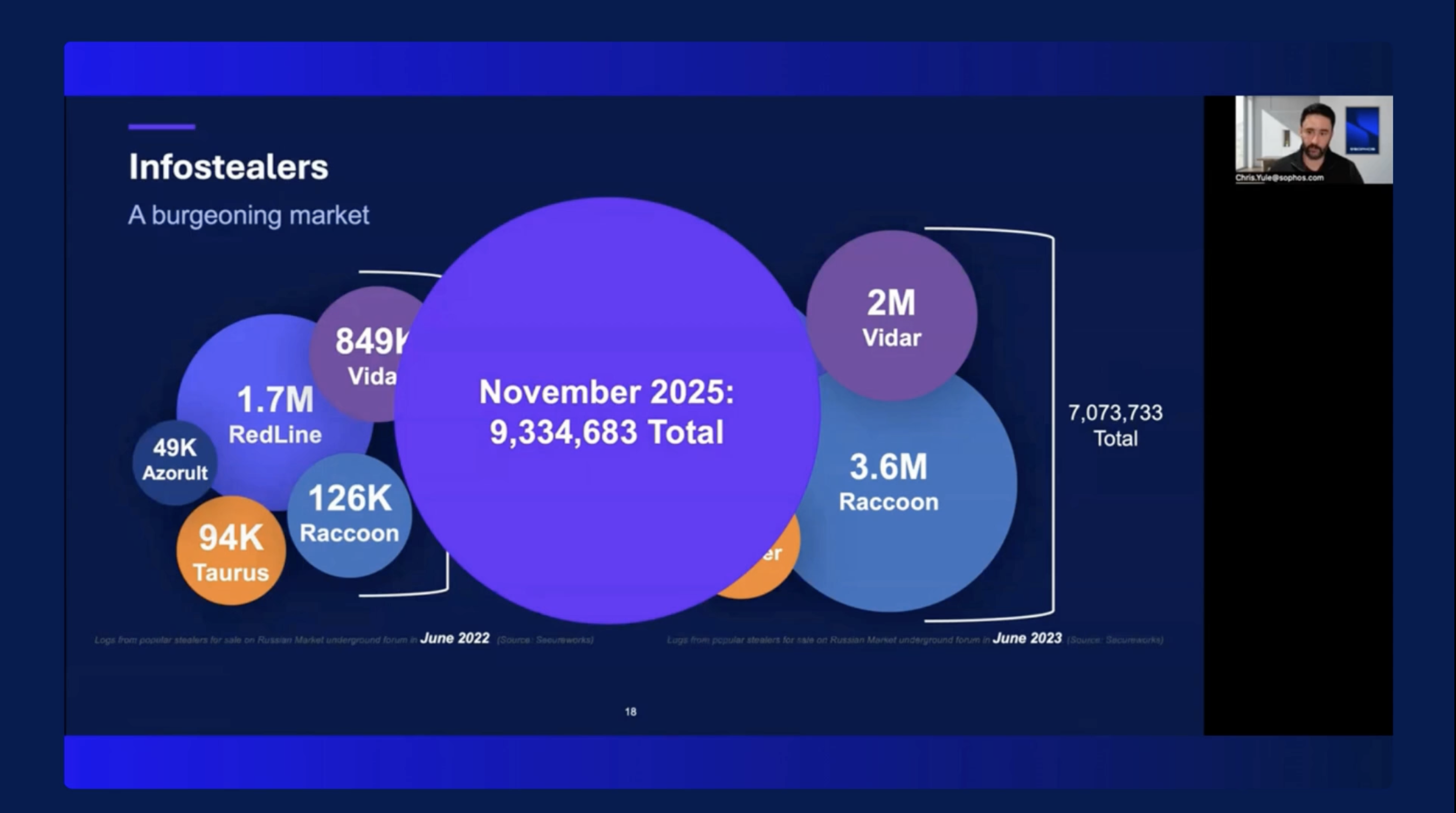
What is DNS security?
DNS stands for Domain Name System, an Internet Protocol (IP) standard. DNS essentially creates a contact list for every website on the internet by mapping URLs (domain names) to their corresponding IP addresses, enabling internet-wide browsing and communication.
DNS security protects you from compromises in that service, such as DNS hijacking, which takes control of a user’s online session and redirects it elsewhere, usually to a malicious website. Having security enabled helps ensure that when you type a website address, you reach the correct site safely by blocking access to dangerous and unwanted websites across all internet activities. It adds an extra layer of protection to your network that works instantly on business and personal computers and mobile devices.
What does deploying DNS security entail?
DNS security involves implementing measures—usually in the form of software or a cloud service—to maintain DNS integrity, availability, and authenticity with controls that subvert DNS hijacking, spoofing, and other cyberthreats. It helps protect communications networks by instantly blocking access to unsafe and unwanted domains across all ports, protocols, and applications at the earliest opportunity, from both managed and unmanaged devices.
Deploying DNS security complements and augments an organization’s existing network security and policy enforcement tools. Sophos DNS Protection, for example, is a globally accessible domain name resolution cloud service with integrated policy controls, reporting, and real-time threat intelligence that collectively shield your organization from malicious domain activity.
How does DNS security work?
DNS security solutions implement proactive security measures to safeguard networks and devices from online threats effectively. If you were to think of the internet as a vast, interconnected city, with every website a different building in that city, DNS security would be an elite, trusted patrol service that guides traffic securely and safely to and from the various buildings and ensures that the routes taken are secure.
Just as the reliable security agency prevents traffic from being misled into dangerous neighborhoods, DNS security intercepts and blocks access to malicious or unauthorized domains. It continually monitors all the city streets (network), detecting and neutralizing threats from criminals (hackers) and counterfeit merchandise (cyber traps) to keep the streets free of crime. In this way, DNS security makes sure you only reach legitimate and secure destinations while protecting the integrity and flow of your digital activities.
What are DNS servers?
DNS servers are computers dedicated to maintaining domain name data and answering DNS queries, and they are crucial components of the internet infrastructure. They are the machines that translate domain names into IP addresses and facilitate seamless web browsing. There are two types of DNS servers: authoritative nameservers, which store the actual DNS domain records and mapping information, and recursive nameservers, which resolve DNS queries by finding correct authoritative nameservers. DNS servers generally use a cache, which temporarily stores DNS lookups to expedite future requests.
Do I need DNS security?
Yes. DNS security is vital for mitigating cyberattacks that exploit DNS to generate destructive campaigns that might use a range of attacks, such as ransomware and phishing. Protecting DNS effectively and preemptively helps prevent DNS-based data breaches and malware infiltrations of critical network components.
DNS security also uses continuous monitoring to address organizations’ DNS “blind spot,” or the lack of visibility into DNS traffic, which cybercriminals can exploit.
What are the main components of DNS security?
DNS security measures include several components.
- DNS filtering: Blocks access and traffic to malicious websites and other harmful online content, safeguarding against DNS attacks such as DNS hijacking
- DNS security extensions (DNSSEC): Validates DNS requests by digitally signing them with cryptographic signatures, ensuring DNS data integrity and protecting against attacks like DNS spoofing and DNS poisoning
- Unified threat management (UTM): Integrates internet, email, and endpoint/antivirus security to eliminate security gaps
- Ongoing threat intelligence: Actionable insights into cyberthreats gathered from data points all across the network that do the following:
- Leverage real-time updates to block risky sites, both known and new
- Monitor DNS requests from endpoints and network devices
- Help meet compliance mandates by enforcing filtering and blocking policies
- Help maintain fast and secure network connectivity
- Safeguard sensitive data from theft
- Mitigate malware, phishing, and ransomware threats
- Prevent unauthorized web and non-web communications from compromised systems
How can my company enable strong DNS protection?
To ensure robust DNS-layer protection, choose a DNS service that offers the following functions:
- Maintains user and corporate privacy
- Provides visibility and control of DNS traffic
- Prioritizes alerts so that your cyber team focuses on the greatest threats
- Utilizes DNSSEC to protect DNS data integrity
- Supports all endpoints and operating systems in your network
What types of attacks does DNS security protect against?
Several have been mentioned in other questions in this FAQ. DNS security safeguards against a variety of sophisticated attacks aimed at manipulating or exploiting DNS protocols. The primary ones are described below.
- DNS spoofing: Redirects internet traffic to a malicious website using a poisoned cache.
- DNS or cache poisoning: Corrupt DNS data introduced into the DNS resolver's cache causes the name server to return an incorrect result record (IP address) and misdirect traffic.
- DNS amplification: Exploits DNS server vulnerabilities to send large volumes of legitimate traffic, leading to server crashes and denial of service.
- DNS hijacking: Exploits vulnerabilities to seize control of a DNS server to purposefully manipulate how DNS queries are resolved and redirect traffic to a malicious website.
- DNS tunneling: Uses DNS requests to implement a command and control channel for malware that can be used to exfiltrate data.
How does DNS security combat ransomware?
DNS security helps detect and prevent ransomware attacks by blocking access to malicious domains used by ransomware. It can also help identify infected devices on the network, allowing quicker response and mitigation.
What are some valuable DNS security deployment models and considerations?
Automation and integration of DNS protection measures can enhance your defenses against DNS exploits. For example, integrating firewall capabilities with the DNS security components mentioned—threat intelligence, filtering, DNSSEC, and UTM—combines the firewall defense of granting or denying access to your network based on preconfigured policies with automated DNS filtering and policy enforcement. This synergy enhances protection against DNS-based threats like spoofing and tunneling, ensuring swift detection and mitigation of malicious activities and fortifying network security with proactive defense mechanisms.
Automation can streamline your implementation of DNS security measures, making it easier for your organization to protect the network, and allow your DNS security solution to continuously monitor and update security policies based on the latest threats. Automated 24/7 monitoring of DNS data can provide valuable insights into network traffic and potential security threats, helping your organization identify patterns and anomalies that indicate malicious activity.
Are there any special considerations for small and midsize businesses (SMBs)?
Combined with a firewall, DNS-layer security is especially important for small businesses. SMBs are often targeted by cybercriminals because these businesses generally have fewer cybersecurity experts on staff and smaller budgets, which often results in overall weaker security measures. Implementing DNS-layer security can fill in the gaps to better protect smaller businesses from DNS-based ransomware and other cyberattacks.
What offerings does Sophos provide for DNS security?
Sophos DNS Protection is part of Sophos’ AI-native open security management platform, Sophos Central. It’s available to Sophos Firewall users with Xstream Protection licenses at no additional cost. It integrates with Sophos firewalling seamlessly, enhancing overall web and network security by blocking unsafe domains promptly. The solution allows customers to consolidate cyber protection functions and avoid the cost of having to invest in a third-party DNS solution.
What are the main capabilities of Sophos DNS Protection?
- Network Protection: High-performance, cloud-based DNS protection for website compliance and network security managed via Sophos Central.
- Domain name resolution service: Backed by SophosLabs and powered by Al to block malicious or unwanted URLs and prevent access to unsafe or unwanted domains.
- High-performance web protection: Defends across every application, port, and protocol that accesses a web domain.
- Granular and easy compliance: Network-wide access control that prevents users from accessing non-compliant domains, ensuring adherence to corporate policies.
- Easy deployment: Can be deployed in minutes, providing quick and effective security for organizations.
- Global accessibility: Offers a globally accessible domain name resolution service with integrated policy controls and reporting in Sophos Central.
- Real-time threat intelligence: Backed by SophosLabs’ Intelix real-time threat intelligence for continuous protection.
- Policy enforcement: Allows organizations to enact policies for granting or denying company access to specific domain categories or lists.
- Integrated reporting: Provides in-depth visibility into the domains visited from the network, with comprehensive dashboarding and reporting.
- Dynamic IP support: When used with a Dynamic DNS provider, supports automatic updates of DNS records when an IP address changes, ensuring compatibility with evolving network configurations.
- Cross-product integration: Shares log data and intelligence with Sophos Data Lake for use by Sophos Extended Detection and Response (XDR) and Sophos Managed Detection and Response (MDR) threat-hunting analysts, enhancing threat detection capabilities.
Deploy DNS Protection
Sophos DNS Protection is available at no extra charge to Sophos Firewall customers licensing the Sophos Xstream Protection bundle, adding value to existing protection solutions. To find out more about how Sophos DNS Protection can enhance your company’s overall security posture, visit Sophos firewall for a free trial.
DNS security resources
Sophos Firewall with DNS Security
Related security topic: What is vulnerability management?
.svg?width=185&quality=80&format=auto&cache=true&immutable=true&cache-control=max-age%3D31536000)


.svg?width=13&quality=80&format=auto&cache=true&immutable=true&cache-control=max-age%3D31536000)



